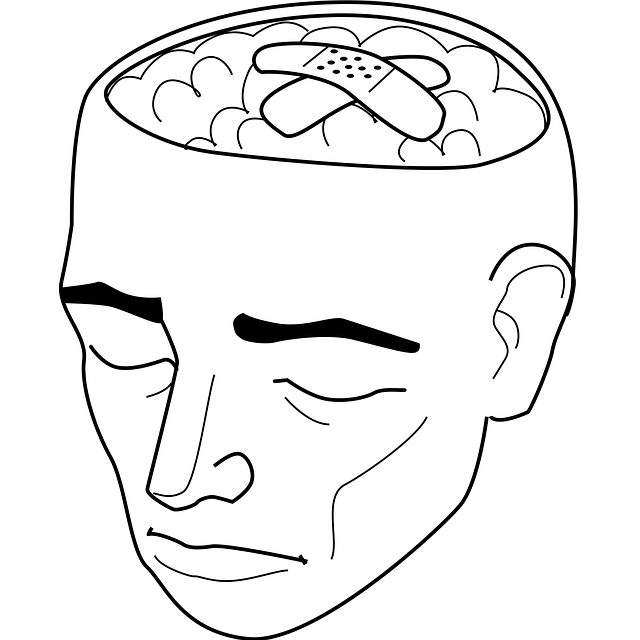Substance abuse is a complex issue requiring comprehensive strategies. Parker Psychological Testing Therapy offers a revolutionary approach by assessing cognitive functions, emotional resilience, and mental health to create personalized interventions. Combined with Cognitive Behavioral Therapy (CBT), this method tackles root causes, enhances impulse control, and promotes positive thinking. Lifestyle changes, including healthy habits and social connections, are crucial for recovery, supported by evidence-based programs and stress reduction techniques. Medication-Assisted Treatment (MAT) is available, combining medications with behavioral therapy for improved results. Community initiatives and support groups foster supportive environments, reducing stigma and promoting long-term sobriety through emotional intelligence development.
Substance abuse poses significant risks, but proactive strategies can mitigate these dangers. This article explores comprehensive risk reduction techniques, focusing on evidence-based approaches for a healthier path. We delve into understanding the complexities of substance abuse and its impact. Key methods include the utilization of Parker Psychological Testing for accurate risk assessment, Cognitive Behavioral Therapy (CBT) to modify behaviors, and lifestyle changes supported by peer groups. Additionally, we highlight Medication-Assisted Treatment as a safe route to abstinence, emphasizing the crucial role of professional guidance in recovery.
- Understanding Substance Abuse and Its Risks
- The Role of Parker Psychological Testing in Risk Assessment
- Cognitive Behavioral Therapy (CBT) for Risk Reduction
- Lifestyle Changes and Support Groups for Sustained Recovery
- Medication-Assisted Treatment: A Safe Path to Abstinence
Understanding Substance Abuse and Its Risks

Substance abuse is a complex issue that encompasses various behaviors related to the harmful use of drugs or alcohol. It’s more than just occasional binge drinking or recreational drug use; it involves repeated and excessive consumption, leading to significant impairment in daily functioning. Understanding these patterns is crucial for implementing effective risk reduction strategies, especially considering the severe consequences on an individual’s physical and mental health, relationships, and overall well-being.
The risks associated with substance abuse are multifaceted. They can include addiction, cognitive impairments, increased vulnerability to mental illness, and engagement in dangerous behaviors. By promoting self-care practices and fostering public awareness campaigns, communities can play a pivotal role in prevention. For instance, Parker Psychological Testing Therapy offers valuable tools for early detection and intervention, addressing the root causes of substance abuse. Additionally, Mental Illness Stigma Reduction Efforts contribute to creating a supportive environment where individuals are encouraged to seek help without fear of judgment.
The Role of Parker Psychological Testing in Risk Assessment

Parker Psychological Testing is a valuable tool in the realm of substance abuse prevention and treatment. This comprehensive assessment method goes beyond traditional risk factors by delving into an individual’s psychological makeup, identifying vulnerabilities, and offering insights that can significantly influence their path to recovery. Through various psychometric measures, it evaluates cognitive functions, emotional resilience, and potential triggers, providing a nuanced understanding of the person’s mental health landscape.
By integrating Parker Psychological Testing Therapy into risk reduction strategies, professionals gain a powerful ally in tailoring interventions. The results guide the development of personalized therapy plans that focus on promoting emotional well-being and employing positive thinking techniques. Furthermore, it assists crisis intervention guidance by enabling therapists to anticipate and address specific challenges, ensuring individuals receive the most effective support during their journey towards abstinence and improved mental health.
Cognitive Behavioral Therapy (CBT) for Risk Reduction

Cognitive Behavioral Therapy (CBT) is a powerful tool for individuals looking to reduce risks associated with substance abuse. This evidence-based approach helps clients identify and challenge negative thought patterns and behaviors, replacing them with healthier alternatives. By focusing on the connection between thoughts, feelings, and actions, CBT enables people to develop effective coping skills when faced with high-risk situations or triggers.
Through Parker Psychological Testing Therapy, CBT incorporates tailored stress reduction methods and positive thinking strategies. The process involves learning to recognize and modify self-destructive behaviors, improving impulse control, and enhancing overall well-being. By addressing the underlying causes of substance abuse, this therapy empowers individuals to make better choices and build a more robust foundation for long-term recovery.
Lifestyle Changes and Support Groups for Sustained Recovery

Making significant lifestyle changes is a crucial component of sustained recovery from substance abuse. This involves adopting healthier habits such as regular exercise, nutritious eating, and adequate sleep to improve overall well-being. Engaging in activities that foster social connections, like joining support groups or community programs, can also play a vital role. Parker Psychological Testing & Therapy offers tailored programs designed to address individual needs, incorporating evidence-based practices for Depression Prevention and Mental Health Awareness.
Support groups, in particular, provide a safe and understanding environment where individuals in recovery can share their experiences, gain insights from peers, and build a strong support network. These groups often facilitate open discussions on various topics, including Stress Reduction Methods, which are essential tools for navigating challenges and maintaining long-term sobriety. By combining professional therapy with peer support, individuals on the path to recovery have increased chances of achieving and maintaining a substance-free lifestyle.
Medication-Assisted Treatment: A Safe Path to Abstinence

Medication-Assisted Treatment (MAT) offers a safe and proven path to substance abuse recovery for many individuals. This approach combines behavioral therapy with prescription medications designed to alleviate withdrawal symptoms and reduce cravings, making it an effective tool in navigating the road to abstinence. By addressing the physiological dependencies associated with substance abuse, MAT allows individuals to focus on the psychological aspects of addiction during therapy sessions, facilitated by professionals like those at Parker Psychological Testing & Therapy.
The integration of medication and therapy provides a comprehensive strategy that targets both the physical and emotional dimensions of addiction. This dual-approach not only enhances recovery rates but also improves overall treatment adherence. Additionally, community outreach program implementation can extend these benefits by fostering supportive environments where individuals in recovery can connect with peers facing similar challenges, reinforcing healthy habits and communication strategies essential for maintaining long-term sobriety, all while cultivating emotional intelligence to navigate life’s stressors without turning to substances.
Substance abuse is a complex issue, but with a multi-faceted approach, recovery is achievable. By combining understanding and assessment tools like Parker Psychological Testing, therapeutic interventions such as CBT, and support mechanisms including lifestyle changes and peer groups, individuals can effectively manage and reduce risks associated with substance abuse. Additionally, Medication-Assisted Treatment offers a safe and supported path to abstinence. Embracing these strategies paves the way for a brighter, healthier future, emphasizing that help is available and recovery is within reach.














